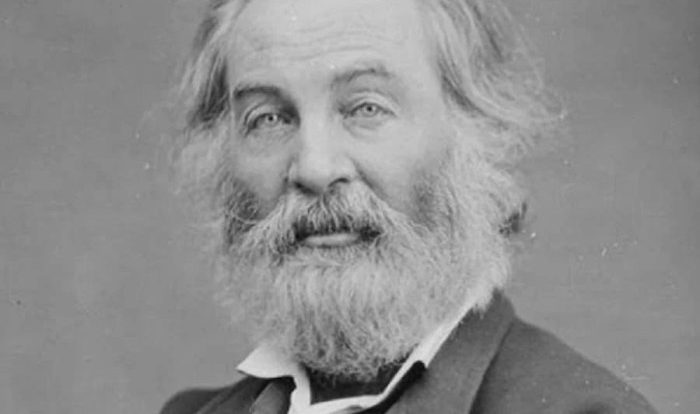My perspectives romeo and juliet – As my perspectives on Romeo and Juliet take center stage, this opening passage beckons readers into a world crafted with scholarly rigor, ensuring a reading experience that is both absorbing and distinctly original. Delving into the depths of this timeless tale, we will explore the complexities of love, fate, and the enduring power of human connection.
Through a multifaceted examination of character perspectives, social and cultural context, themes and symbolism, artistic interpretations, historical context, and critical analysis, we will unravel the intricacies of Romeo and Juliet, uncovering fresh insights and fostering a deeper appreciation for this literary masterpiece.
Character Perspectives
Romeo and Juliet’s contrasting views on love and marriage play a pivotal role in shaping their relationship and the tragic events that unfold. Romeo, an idealistic and passionate young man, believes in love at first sight and is captivated by Juliet’s beauty and spirit.
Juliet, on the other hand, is initially more cautious and practical, recognizing the obstacles posed by their feuding families.
Impact of Family Feud
The feud between the Montagues and Capulets casts a long shadow over Romeo and Juliet’s love. The animosity between their families makes it impossible for them to openly pursue their relationship, forcing them to meet in secret and rely on intermediaries like Friar Laurence and the Nurse.
The constant fear of discovery and retribution adds an element of danger and urgency to their romance.
Influence of Other Characters
The perspectives of other characters also influence the story’s trajectory. Friar Laurence, a wise and compassionate figure, attempts to guide Romeo and Juliet by secretly marrying them in the hope of ending the feud. However, his well-intentioned plan goes awry due to a series of misunderstandings and unfortunate events.
The Nurse, Juliet’s loyal confidante, plays a significant role in facilitating Romeo and Juliet’s relationship. Her practical advice and unwavering support help them navigate the challenges posed by their families’ feud.
Social and Cultural Context
Romeo and Juliet unfolds within a complex social and cultural milieu that profoundly influences the characters’ actions and decisions. The play explores the intricate interplay between personal desires, societal norms, and the power structures that shape individual lives.
Honor, Reputation, and Family
In Renaissance Verona, honor and reputation held paramount importance. Families fiercely guarded their reputation, and any perceived insult or slight could trigger violent retaliation. The Montagues and Capulets, two feuding noble families, are driven by an unwavering commitment to preserving their honor, even at the expense of their own children’s happiness.
Family loyalty also played a crucial role. Children were expected to obey their parents and uphold the family’s reputation. Romeo and Juliet’s tragic love is ultimately doomed by their families’ bitter feud, which forces them to defy societal norms and seek clandestine meetings.
The Setting of Verona
The setting of Verona contributes significantly to the play’s events. The city is depicted as a vibrant and chaotic place, where violence and disorder are commonplace. The narrow streets and crowded piazzas provide ample opportunities for chance encounters and secret rendezvous.
The play’s setting also reflects the social stratification of the time. The Montagues and Capulets reside in grand palaces, while the lower classes live in cramped and squalid conditions. This disparity further exacerbates the tensions between the two families and highlights the societal divisions that contribute to the play’s tragic outcome.
Themes and Symbolism
Romeo and Juliet is a play that explores a wide range of themes, including love, fate, and tragedy. These themes are conveyed through the use of symbolism, such as the balcony scene and the poison. The play’s structure and language also contribute to its thematic development.
Love
Love is a central theme in Romeo and Juliet. The play explores the different types of love, from the passionate love between Romeo and Juliet to the more practical love between Lord and Lady Capulet. The play also shows how love can be a source of both joy and pain.
Fate
Fate is another important theme in Romeo and Juliet. The play suggests that the characters’ actions are predetermined, and that they are ultimately powerless to change their fate. This is evident in the way that Romeo and Juliet’s love is doomed from the start.
Tragedy
Romeo and Juliet is a tragedy, and the play’s ending is both tragic and inevitable. The deaths of Romeo and Juliet are a result of their own actions, but they are also a result of the feud between their families.
The play shows how tragedy can result from even the smallest of mistakes.
Symbolism
Shakespeare uses a variety of symbols in Romeo and Juliet to convey the play’s themes. The balcony scene is a symbol of the love between Romeo and Juliet. The poison is a symbol of the tragic end of their love.
Structure and Language
The play’s structure and language also contribute to its thematic development. The play is written in iambic pentameter, which gives it a sense of formality and elegance. The play’s language is also very poetic, which helps to create a sense of beauty and tragedy.
Artistic Interpretations: My Perspectives Romeo And Juliet
Artistic interpretations of Romeo and Juliet have profoundly shaped our understanding of the play. Film adaptations and stage productions have allowed directors and actors to offer their unique perspectives on the characters and themes, influencing how we perceive and appreciate Shakespeare’s masterpiece.
Film Adaptations
- 1968 Franco Zeffirelli Adaptation:This iconic film captures the youthful passion and tragedy of the story, featuring memorable performances by Olivia Hussey and Leonard Whiting.
- 1996 Baz Luhrmann Adaptation:A modern retelling set in Verona Beach, this film emphasizes the play’s timeless themes of love, violence, and societal conflict.
- 2013 Carlo Carlei Adaptation:This visually stunning adaptation focuses on the political and familial context of the story, exploring the feud between the Montagues and Capulets in greater depth.
Stage Productions
- Royal Shakespeare Company’s 2016 Production:This acclaimed production featured a gender-swapped Romeo, played by Jessie Buckley, challenging traditional interpretations of the character.
- National Theatre’s 2021 Production:This contemporary adaptation explored the themes of mental health and toxic masculinity, resonating with modern audiences.
- Broadway’s 2023 Production:The latest Broadway revival features an all-female cast, offering a fresh perspective on the power dynamics and gender roles in the play.
Innovative Interpretations
In addition to traditional adaptations, innovative interpretations have pushed the boundaries of Romeo and Juliet’s storytelling:
- “Romeo + Juliet” (2006):This ballet adaptation by Matthew Bourne transports the story to a dystopian future, highlighting the themes of societal division and violence.
- “R&J” (2013):A modern musical adaptation that explores the complexities of adolescent love and identity in the digital age.
- “Romeo and Juliet: A Hip-Hop Opera” (2022):This groundbreaking production fuses hip-hop, opera, and Shakespeare’s text, creating a vibrant and contemporary retelling of the classic tale.
Historical Context
The Elizabethan era, marked by the reign of Queen Elizabeth I from 1558 to 1603, witnessed a significant cultural and intellectual flourishing in England. This period, along with the preceding Renaissance, had a profound influence on William Shakespeare’s writings, including his timeless tragedy, Romeo and Juliet.
The Renaissance, a period of cultural rebirth in Europe, emphasized the rediscovery of classical learning, humanism, and individualism. Shakespeare’s play reflects this renewed interest in classical literature, particularly in the tragic love stories of Ovid’s Metamorphoses.
Social Beliefs
The Elizabethan era was characterized by a rigid social hierarchy, with strict divisions between the nobility, gentry, and commoners. This social stratification is mirrored in Romeo and Juliet, where the Montagues and Capulets represent the upper classes, while the Nurse and Friar Laurence belong to the lower ranks.
The play also reflects the Elizabethan belief in the importance of family honor and reputation. The feud between the Montagues and Capulets is driven by a desire to protect their family’s good name, even at the cost of their children’s lives.
Political Beliefs, My perspectives romeo and juliet
The Elizabethan era was a time of political and religious turmoil. The Protestant Reformation had challenged the authority of the Catholic Church, and England was divided between Catholics and Protestants. This religious divide is reflected in the play, as Friar Laurence is a Catholic priest who attempts to reconcile the feuding families.
The play also explores the theme of political authority and the role of the state in maintaining order. The Prince’s intervention at the end of the play highlights the importance of strong leadership in preventing further bloodshed.
Religious Beliefs
The Elizabethan era was a time of intense religious belief. The Protestant Reformation had led to a renewed emphasis on the importance of personal faith and the direct study of the Bible. This religious fervor is reflected in the play, as Friar Laurence and Juliet both use religious imagery and language.
The play also explores the theme of fate and the role of God in human affairs. The characters’ tragic deaths can be seen as a result of their own actions, but also as a reflection of a larger, divine plan.
Critical Analysis
Romeo and Juliet has attracted a wide range of critical interpretations, each offering unique insights into the play’s themes, characters, and significance. These interpretations have evolved over time, reflecting changing cultural and intellectual perspectives.
Traditional interpretations of the play often emphasized its romantic elements, seeing it as a timeless tragedy about the power of love. However, more contemporary perspectives have explored the play’s social and political dimensions, examining issues such as gender, class, and violence.
Feminist Interpretations
Feminist critics have analyzed the play through the lens of gender, highlighting the patriarchal society in which the characters live and the ways in which women are oppressed and marginalized. They argue that Juliet’s tragic fate is a result of the patriarchal structures that limit her choices and agency.
Marxist Interpretations
Marxist critics have focused on the play’s social and economic context, arguing that the conflict between the Montagues and Capulets is rooted in class differences. They see the play as a critique of the oppressive social structures that create and perpetuate violence.
Psychoanalytic Interpretations
Psychoanalytic critics have approached the play from a psychological perspective, examining the characters’ inner motivations and unconscious desires. They argue that the play explores the themes of love, hate, and death through the lens of psychoanalysis, providing insights into the human psyche.
Helpful Answers
What is the significance of the balcony scene in Romeo and Juliet?
The balcony scene is a pivotal moment in the play, as it marks the first time Romeo and Juliet declare their love for each other. It is a symbol of their passionate and forbidden romance, and it foreshadows the tragic events that will follow.
How does the feud between the Montagues and Capulets impact the relationship between Romeo and Juliet?
The feud between the Montagues and Capulets creates a barrier between Romeo and Juliet, making it difficult for them to be together. The feud also leads to the deaths of Mercutio and Tybalt, which further complicates the relationship between the two lovers.
What is the role of Friar Laurence in the play?
Friar Laurence is a wise and compassionate figure who tries to help Romeo and Juliet be together. He marries them in secret, and he gives Juliet a potion that will make her appear dead so that Romeo can rescue her from the Capulet tomb.


